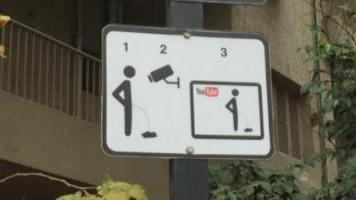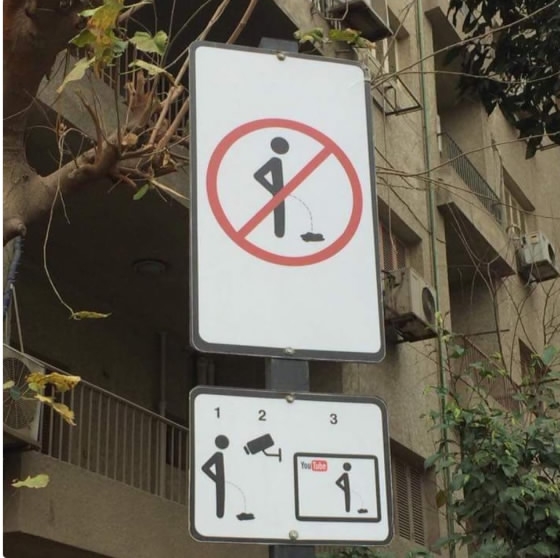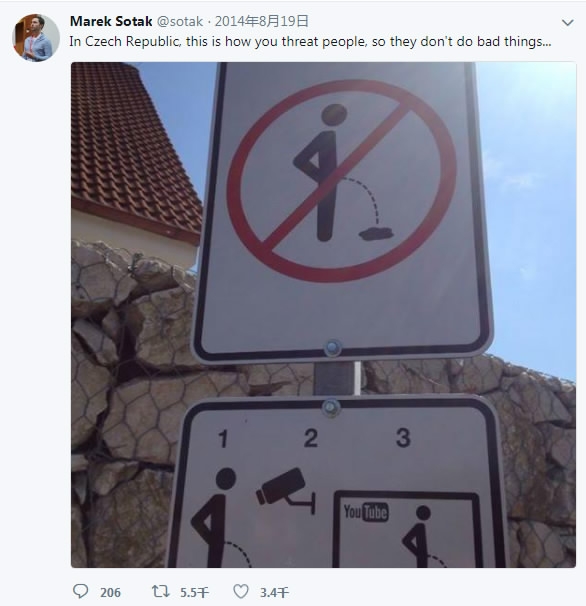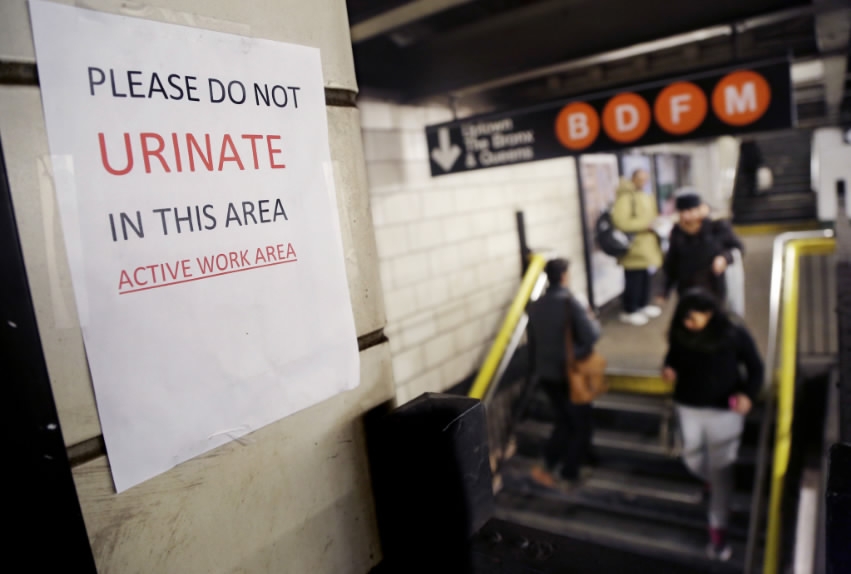
World
23:37, 02-Mar-2018
Urine trouble! Cairo campaign threatens public shaming for public urination
Nadim Diab

Local authorities in the Egyptian capital are threatening to upload surveillance footage of people relieving themselves in public to YouTube, in a push to flush out the controversial, but common behavior. But as the campaign to clean up Cairo’s modern image – and the stench of its streets – gets underway, many have been quick to point out another offensive problem being swept under the rug: the lack of public toilets.
Road signs have been erected in al-Marghany, a main street in Heliopolis in the northwestern outskirts of Cairo, with a message for prospective offenders: empty your bladder in public, and you could end up on YouTube.
The Head of Heliopolis district Ibrahim Saber told Egyptian media that surveillance cameras in the affluent area were installed to hold those who urinate in public accountable and put a stop to the unhygienic habit.

CGTN screenshot of a recent sign threatening to post videos of people urinating in public on YouTube in Cairo, Egypt.
CGTN screenshot of a recent sign threatening to post videos of people urinating in public on YouTube in Cairo, Egypt.
The placards feature a “no peeing” sign and a simple drawing warning people of the potential consequences.
The notice is a replica of a plate outside a hotel in the Czech town of Mikulov that made the rounds online in 2014.
Saber said the move, which has been taken in coordination with local residents and non-governmental organizations (NGO), also aims to discourage people from littering and raise awareness about environmental protection.
Overlooked infraction
In Egypt, public urination falls under indecent exposure and is punishable by law.
According to the country’s penal code, offenders could land a jail term of at least six months and pay a fine ranging from 3,000 Egyptian pounds (170 US dollars) to 5,000 Egyptian pounds (over 280 US dollars).
However, lax police supervision and enforcement of the law have meant people could take a leak in the open without taking note of the consequences.
Sights of men in Cairo answering the call of nature in parking lots, under bridges and outside building entrances are not uncommon, and certain streets around the capital are unavoidably smelly.
News about the street signs made a splash on the Egyptian blogosphere, with #NewCairo (where the signs were put up) making its way to the top 10 trending hashtags on Twitter earlier in the week.

CGTN screenshot of a 2014 tweet showing a "no peeing" sign outside Hotel Marcinčák, Czech Republic.
CGTN screenshot of a 2014 tweet showing a "no peeing" sign outside Hotel Marcinčák, Czech Republic.
Some reacted humorously, sharing tips about where to best catch wrongdoers in the act around town.
"If only you could place these signs around bus stops, because the situation there is unbearable," said a Twitter user who goes by the name Rana.
"Castration is better than public shaming," quipped another user named @iuEzo.
Underlying cause
Others argued that public urination is what happens when a country lacks sanitation facilities, and lamented the authorities’ dereliction of duty.
"Eliminating urination on the streets begins with providing public toilets," maintained @Albeayeyz.
"Till when are we going to impose punishments without providing solutions?" wondered @mostafasaad9140.
There is only one public toilet for every 72,600 citizens in Egypt, according to data from the Central Agency for Public Mobilization and Statistics reported by Egypt Independent newspaper.
The latest official figures show that the country of 94.7 million people has just 1,304 public facilities.
A good number of these establishments are not maintained, unsanitary and substandard. Moreover, they charge users, forcing pedestrians and motorists to relieve themselves in restrooms at fast food outlets and mosques, or more conveniently al fresco.
A poor person could wonder "why pay money when I can do it in the street for free and have free access to water at any old place to wash up?" a manager of a petrol station told Egyptian newspaper Al-Ahram in 2014.

A sign hangs in the West 4th Street subway station reads "Please Do Not Urinate In This Area – Active Work Area," in New York, US, March 3, 2015. /AP Photo
A sign hangs in the West 4th Street subway station reads "Please Do Not Urinate In This Area – Active Work Area," in New York, US, March 3, 2015. /AP Photo
One official quoted by private newspaper Youm 7 put the blame on local authorities’ failure to fulfill their obligations.
Mohamad el-Fayyoumi, member of the local administration committee in the House of Representatives, said that Egyptian provinces neglected one of their duties, and noted that they could easily build and maintain such facilities using their own funds.
Chinese model
While Egypt is working on polishing the stained image of its streets, China has found relief in improving the country’s sanitary infrastructure and providing access to public restrooms for its residents.
Authorities launched a “toilet revolution" in 2015, with the central government injecting one billion yuan in funding toilet improvement projects and local authorities splashing out more than 20 billion yuan by the end of 2017.
In three years, 68,000 public lavatories were erected or improved.
Some 47,000 extra toilets are expected to be installed, and 17,000 others refurbished by 2020 in the country.

SITEMAP
Copyright © 2018 CGTN. Beijing ICP prepared NO.16065310-3
Copyright © 2018 CGTN. Beijing ICP prepared NO.16065310-3